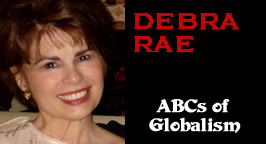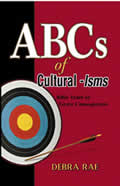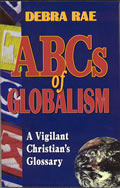ISLAMO-PHOBIC?
THINK AGAIN
PART 4
By
Debra Rae
September 17, 2011
NewsWithViews.com
Political Lessons Learned by an American Man in Captivity
Our second year of teaching at the American School of Kuwait, I toured Iran while some of my colleagues spent Christmas vacation in Ethiopia. The cheapest, most expeditious route for their travels was through Yemen; therefore, upon leaving Ethiopia for Kuwait, the group arranged a detour to Aden, South Yemen.

Cheryl (third from the right); Ed (center, back row)
Forcefully Separated from Fellows
While some of his group settled in to their hotel room, Ed Franklin chose instead to tour the city. A simple fellow from Nebo, Illinois, Ed was a gentle-spirited fifth grade teacher, eager to learn whatever he could from his travels.
Unfortunately, Ed’s stroll was cut short when Yemeni authorities accosted him, confiscated his camera, and detained him under arrest for no apparent reason. In then-communist South Yemen, Ed was denied due process and “Miranda rights” to speak to an attorney.[1]
South Yemeni officials understood that Ed was no spy; but if not convicted, his captors would lose face. For this reason, Ed faced a two-week “kangaroo” trial resulting in his conviction for espionage—this, on the basis of a single photo he took of a mountain no less!
False Imprisonment
No longer a free man, Ed was now a convicted, incarcerated criminal. The south side of his cell was a wall of steel bars behind which Ed remained in solitary confinement for the next sixteen months.
Were it not for occasional visits by British embassy personnel, his daily diet would have consisted of a mere cup of boiled beans and Coke. In addition to basic food items, visitors fed Ed hope—hope that he was not forgotten even though, to his captors, he lacked humanity.
When guards discovered a pencil stub and paper sack Ed used to write poetry, both were taken from him. Guards permitted no such creative outlets. However, one of the items from Ed’s suitcase was a Bible, which he was allowed to read daily and from which he drew hope.
Bogus promises made to Ed were punctuated with in’sh’alla (“God willing”), so that it was God’s fault, not the captors, when things didn’t happen as promised. The incongruity of blaming a God that purportedly doesn’t even exist evaded Ed’s communist captors. For good reason, Ed learned not to draw hope from their empty words.
Threat of Terror
One night, Ed was startled out of sleep by machine gun fire. At first, he could hear men yelling; then, deadly silence. Ed grieved the fact that families would never know how, in the middle of the night, their loved ones were slaughtered. His own life threatened by what was overheard, Ed laid his head back on his bed, closed his eyes, and prayed the Twenty-third Psalm.
The next afternoon, Ed was not allowed to go to the exercise lot for the first time in months. Not wanting to see evidence of the massacre, Ed preferred to be alone, albeit with haunting memories of terror in the night.
Ed marveled how, after 130 years of British rule, this country became what it was in the 1970s (and, I might add, what it is today). The Republic of South Yemen was established in 1967; two years thereafter, a coup drove it to the political left. Closing the Suez Canal eliminated 5,000 Yemeni jobs; and when the British military base left, the Yemeni lost another 1,500 jobs.
Kind as he was, Ed felt sorry even for his captors. A desert with volcanic mountains, Yemen languished with only three inches of rain each year; and it boasted no oil reserves. Violence marked its tribal-based society, and 95% of its citizens were illiterate.[2]
A Political Pawn
As a result of efforts made by Ed’s parents, Representative Paul Finley, at great personal risk, landed in South Yemen bearing gifts for members of the Aden government. Among those gifts were three college scholarships from Illinois institutions, two Arabic translations of Carl Sandburg’s biography of Lincoln, and two small busts of Lincoln. Finley also brought with him a letter written by Henry Kissinger.
Though uncertain as to the end result of his visit, the Representative told Ed that his capture could well be the first step in better relations between the United States and Yemen—small comfort for a man in Ed’s dire circumstances, but encouraging nonetheless.
After sixteen cruel months of captivity, solitude, hunger, and terror, Ed was released. At long last, Ed’s ordeal was over. With no apologies offered, Finley and he were allowed to leave the country.
Déjà Vu
Perhaps more than ever before, Americans are awakened to the Middle- and Near- East, its politics and culture. Yemen is known today as home of Osama bin Laden’s ancestors—also, the land of American-born and educated Yemeni cleric, known popularly as “the Bin Laden of the Internet.”[3] Ed’s experiences provide a riveting look at a time and place that, to this day, few Americans fully understand.
The Islamic Jihad of Yemen is an al Qaeda terrorist affiliate that claimed responsibility for the 2008 American Embassy attack in Yemen. And it was off the coast of Yemen that, in a deadly suicide attack, the USS Cole was bombed, taking from America seventeen of her “best and brightest” young men and women.
Late in 2010 and early 2011, protesters demanded that the President of Yemen Ali Abdullah Saleh end his three-decade-long rule.[4] A long-time ally of Iraq, the president supported “the Butcher of Baghdad’s” invasion of Kuwait. Awhile back, dissident Yemeni generals and tribesmen accused the embattled president of surrendering Abyan province to "terrorists" after suspected al Qa'eda militants took its capital. Typical to the region, many were left dead.
Though decades have passed since Ed’s wrongful imprisonment, complaints in the wake of the Arab Spring remain much the same—namely, lack of democratic reform, widespread corruption, and human rights abuses. Just last March, when unarmed demonstrators were fired upon, Yemen’s president blamed local residents for the ensuing massacre. While arresting many in the university square, plain clothed policemen wielded daggers and sticks.[5]
The End of the Matter
As was the case decades (even centuries) earlier, tenets of Islam, as practiced today, clash irreconcilably with Western ideals of personal and religious liberty, gender equality, free enterprise, and government of, by, and for the people. This applies all the more when Marxism is introduced. Acknowledging said distinctions is not Islamo-phobic, nor “elitist,” as the PC crowd would have us to believe.[6]
| Subscribe to the NewsWithViews Daily News Alerts! |
Yes, of course, we make the effort to understand others, and by all means we appreciate their noteworthy contributions; but, for the sake of appearing “tolerant,” we mustn’t ignore very real affronts to the life, liberty, and the pursuit of happiness we, as Americans, have been blessed to enjoy.
We do well to consider the words of Dinesh D’Souza,[7] reminding us “America is the greatest, freest and most decent society in existence. It is an oasis of goodness in a desert of cynicism and barbarism. This country, once an experiment unique in the world, is now the last best hope for the world.”
Click here for part -----> 1, 2, 3, 4,
Footnotes:
1.
Miranda
Warning
2.
These observations were drawn from Ed Franklin’s personal memoirs
of his captivity in Aden, South Yemen (1974).
3.
South
Yemen
4.
Abdullah
Saleh
5.
Yemen
Rights Monitor
6.
Following his captivity, Ed Franklin resumed his teaching career—first,
in Missouri, then in Dar es Salaam, Tanzania. Upon returning to his
home state of Illinois, Ed anticipated his upcoming April wedding. Unfortunately,
while driving to Pleasant Hill to run errands, Ed’s car was hit
head on by a semi truck in its failed attempt to pass on a blind curve.
Ed died instantly
7.
Dinesh D’Souza has been called one of the "top young, public-policy
makers in the country" by Investor’s Business Daily. The
New York Times Magazine named him one of America's most influential
conservative thinkers. The World Affairs Council lists him as one of
the nation's 500 leading authorities on international issues. Newsweek
cited him as one of the country's most prominent Asian Americans. D'Souza's
articles have appeared in virtually every major magazine and newspaper,
including the New York Times, Wall Street Journal, The Atlantic Monthly,
Vanity Fair, New Republic, and National Review. He has appeared on numerous
television programs, including the Today Show, Nightline, The News Hour,
O'Reilly Factor, Moneyline, and Hannity and Colmes.












 Share
This Article
Share
This Article






